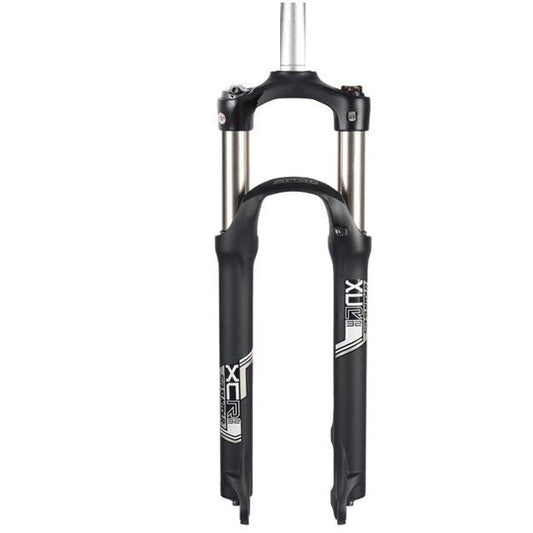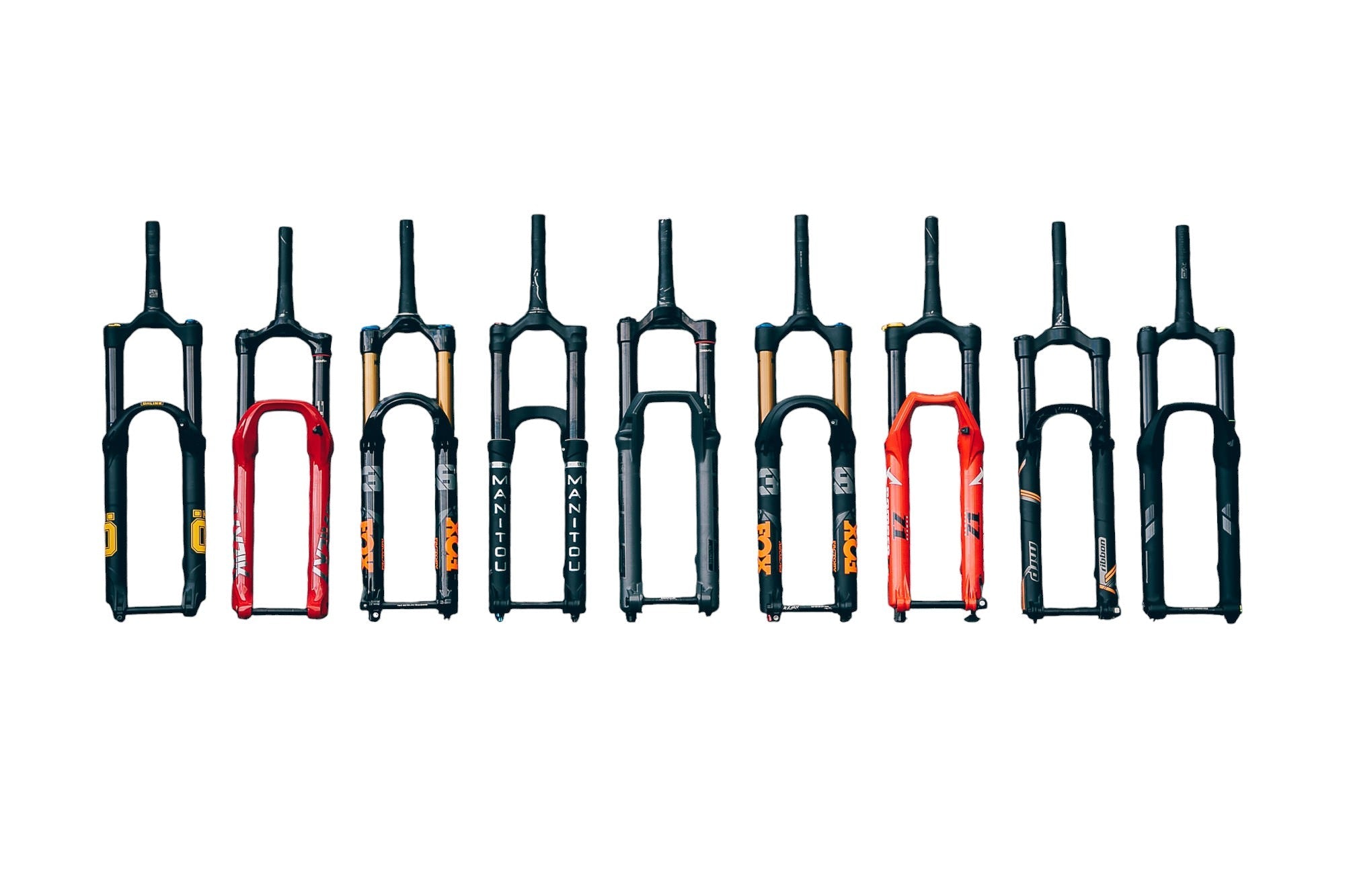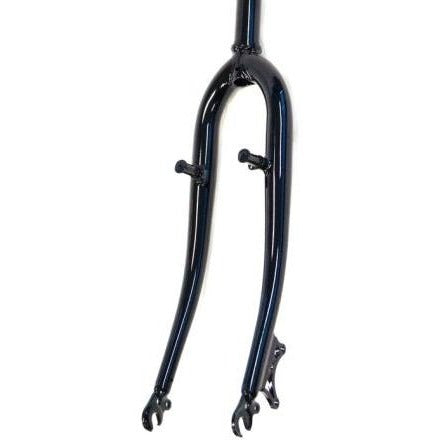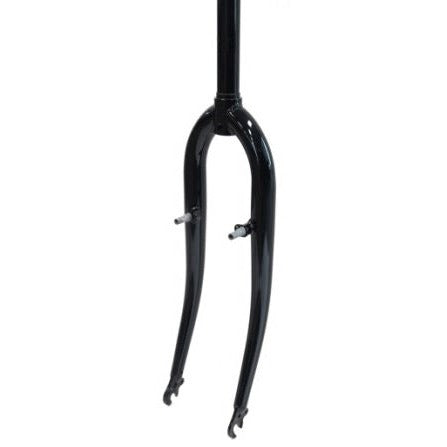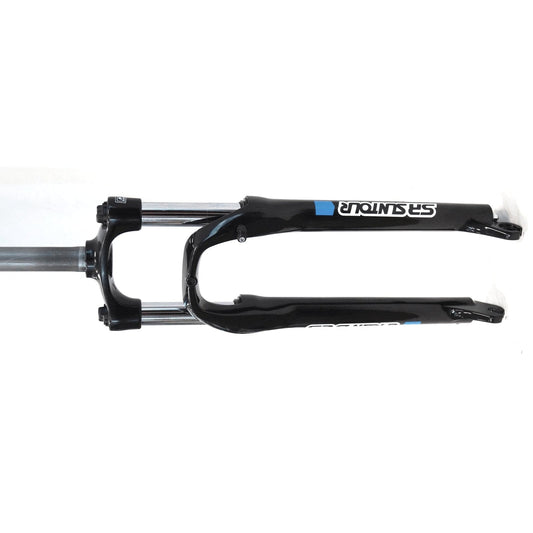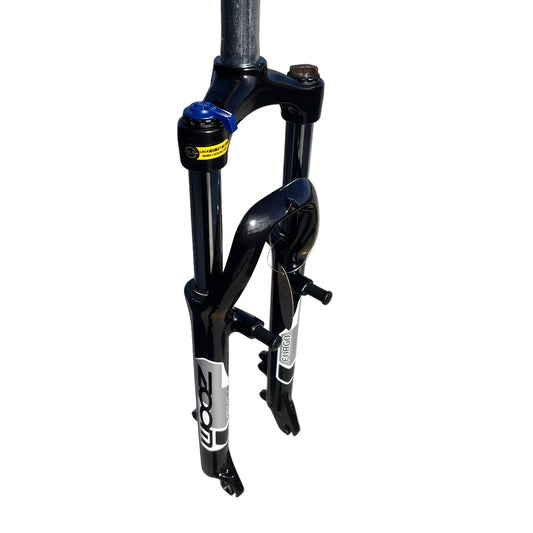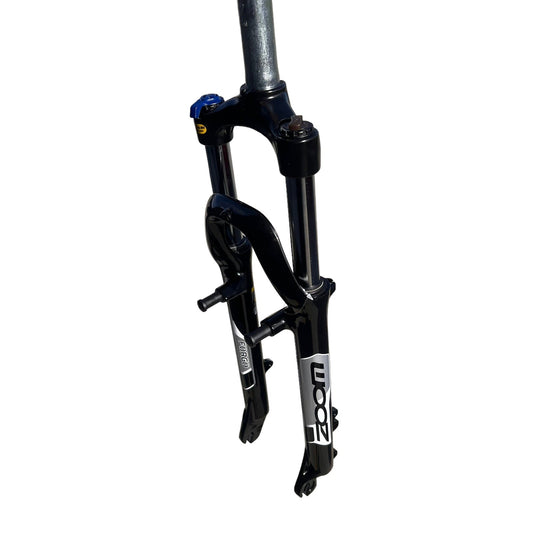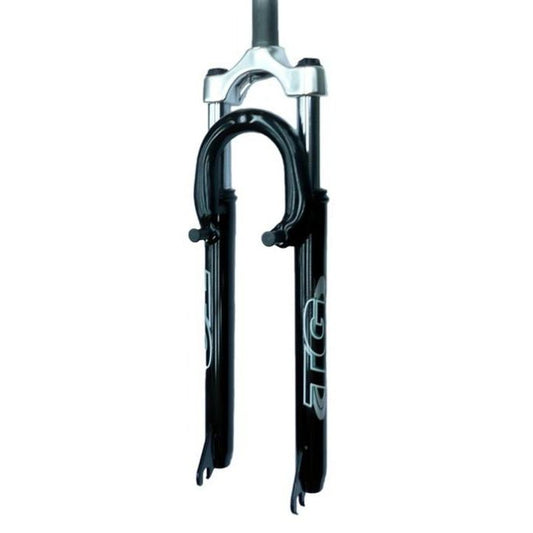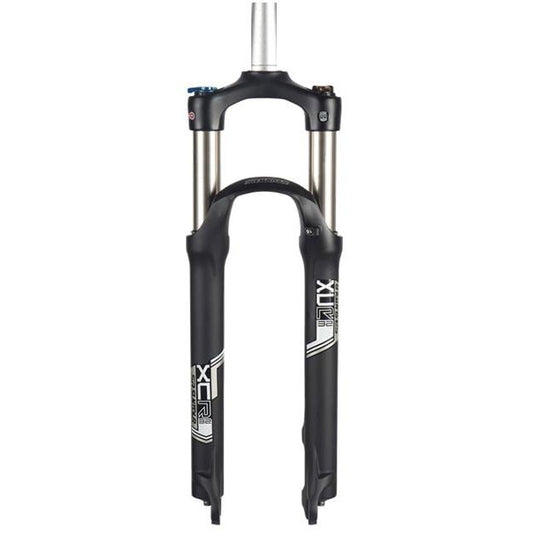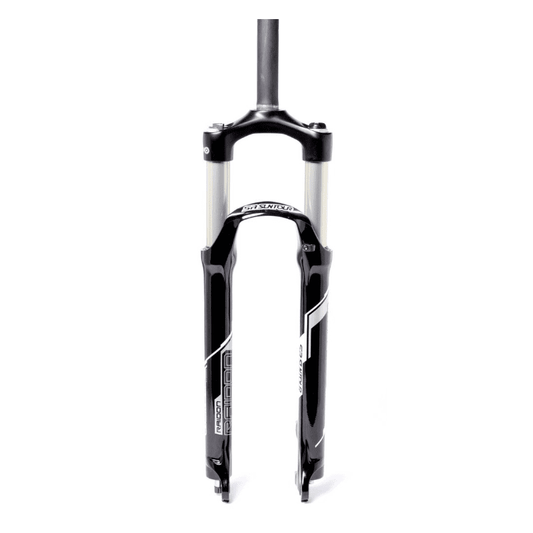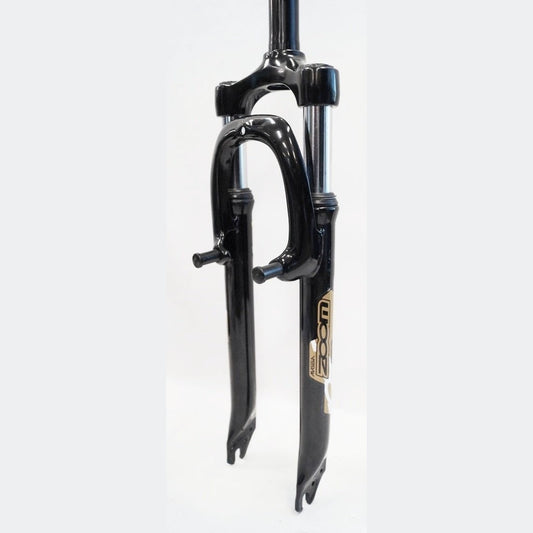Bike forks are an essential component of a bicycle's front end that connects the frame to the front wheel. They play a crucial role in supporting the rider's weight, absorbing shocks and vibrations from the road or trail, and maintaining control and stability.
The primary function of a bike fork is to provide a means of steering and to allow the front wheel to pivot. It consists of two main parts: the steerer tube and the fork legs.
The steerer tube is a long cylindrical tube that extends upward from the fork crown, which is attached to the frame's head tube. The steerer tube connects to the handlebars through the stem, enabling the rider to control the direction of the bike by turning the front wheel.
The fork legs, typically made of aluminum, steel, or carbon fiber, extend downward from the fork crown and hold the front wheel in place. They are often shaped in an "A" or "U" configuration to provide strength and stability. The fork legs may feature suspension systems, such as coil springs or air springs, to absorb impacts and enhance ride comfort by dampening vibrations and bumps.
Bike forks can be classified into two main types: rigid forks and suspension forks.
Suspension forks can further be categorized based on their travel, which refers to the maximum distance the fork can compress and rebound. Forks with longer travel are generally used for more aggressive off-road riding, while shorter travel forks are suitable for lighter trails or smoother surfaces.
It's important to choose a bike fork that matches the intended riding style and terrain, considering factors like weight, durability, suspension performance, and compatibility with the bike frame. Proper maintenance and adjustment of the fork are also crucial for optimal performance and safety on the bike.
